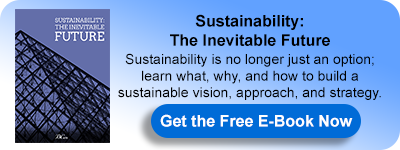How to Bring People into Sustainability Projects?
From what food to buy to what type of energy to use in our personal and professional life, all of our decisions entail tradeoffs connected to sustainability. We are constantly balancing different types of impacts (social, environmental, or economical) at various levels (individual, communal, or societal) and throughout multiple periods (now or later). Although many of us put a high value on protecting the ecosystem, not making every decision in an eco-friendly manner is true to most of us. The cause could be the priority issues or could be simply not having enough information on making sustainable decisions.
For a business to implement successful sustainable management, involvement of all the stakeholders; employees, supply chains, customers, and investors is essential. A clear sustainable vision, a road map, implementable action plans, and communicating the progress toward sustainability will help increase the awareness of all the stakeholders. At the same time, understanding the social or human side of sustainability and bridging between ecological sides of it will also help us feel ownership toward sustainability.
Let’s take a close look at the social side of sustainability. Based on the sustainable principles of The Natural Step, “in the sustainable society, people are not subjected to systemic barriers to health, influence, impartiality, competence, and meaning.” This means that all human being in a sustainable society needs to:
Let’s take a close look at the social side of sustainability.
Based on the sustainable principles of The Natural Step: “In the sustainable society, people are not subjected to systemic barriers to health, influence, impartiality, competence, and meaning.”
This means that all human beings in a sustainable society need to:
- Maintain or create good health (physically, emotionally, and mentally)
- Maintain or establish influence, over the social system one is a part of (participation in decisions, having a voice, democratic rights)
- Have possibilities to learn, to be competent (learning, adaptability, personal growth, access to knowledge)
- Be treated impartially (impartial treatment, fairness, respect, diversity)
- Experience means to be a part of the system (sense of purpose, caring, opportunity to make a difference)
Those five aspects are essential for our social system to build and maintain trust for the society to be functional and adaptive despite the unpredictable change. This also relates to the implementation of sustainability management itself. As the course of achieving the sustainability goal is a process of adapting changes, it is inevitable for us to ensure those aspects to the stakeholders in the sustainability projects.
Ultimately, sustainability is no longer an option. It is rather the inevitable reality. Furthermore, it is an opportunity to gain a competitive advantage over the competitors. The sustainability strategy becomes cutting edge when we set an ambitious sustainability vision that brings sustainability-driven innovations to the business.
Business Consultants, Inc. (BCon) has a particular interest in increasing the number of business leaders who can lead the complex change of overcoming sustainability challenges. BCon’s goal is to achieve this through best utilizing the strength in developing “change leaders” who are capable of dealing with the human side of the change, based on 55 years of experience in Organization Development and Talent Management.
Now with the collaboration with The Natural Step, BCon is providing a course designed for any professional who wishes to lead or influence sustainability-oriented change processes in the business. It is a hands-on course built on participation, which allows attendees to learn quickly, apply concepts to real situations and transfer their learning to their businesses and organizations with the practical knowledge, process, and tools to lead sustainability.
Businesses must implement sustainable management with a sustainable vision and action plans based on a comprehensive understanding of sustainability. Producing a value that benefits the environment, society, and the bottom line is the way for a business to thrive in the future.
For more about this topic, download our latest book " Sustainability: The Inevitable Future " for FREE:
